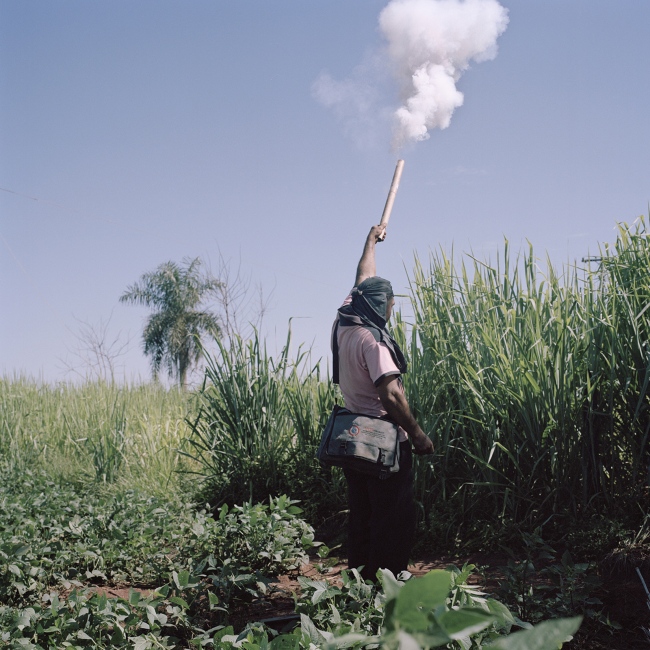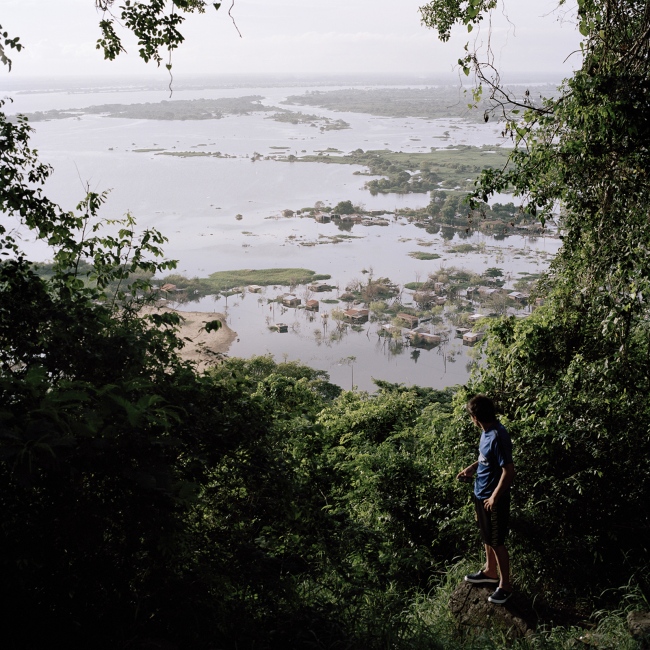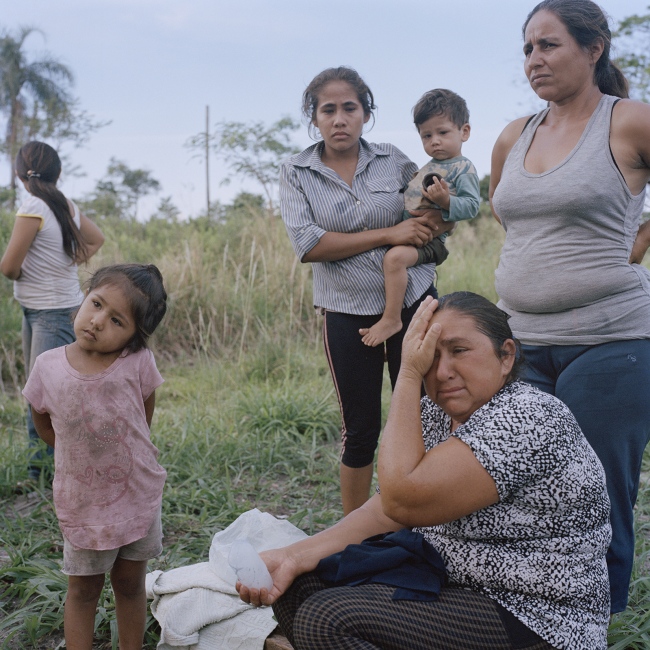A journey through the heartlands of the Southern Cone's agribusiness, the United Soya Republic is a personal exploration of the changes to the landscape and socio-economic tissue brought about by intensive farming and exportation of produce in Argentina and Paraguay.
Over the last decades an array of factors has put food security as one of the most pressing issues of our time; world population growth, water scarcity, climate change, or an increased demand for animal-origin foods -heightening pressure to grow more corn and soybeans to make fodder-; are enormous challenges to the difficult question of how we can feed billions of humans. Largeestate agriculture has been implemented in several parts of the world, transforming harvest methods, food consumption trends, and the lifestyles of both urban and rural populations. Based on genetically modified seeds, and the substantial use of agrochemicals to improve harvests, this model brings together genetic engineering, food processing, and bio-fuels, with the underlying promise of tackling hunger. The Southern Cone has become one of the largest food producers in the world, and a key player in the global food chain.
Following a personal interest in land-issues and the effects of the global economy in small communities I started this work in 2013 with a first trip to Paraguay, where I witnessed the difficulties for large-estate farms to coexist with small familiar production. In 2016 I expanded it to neighboring Argentina, as a means to illustrate the complexities of an economic model that knows no borders and effectively spans over several countries in the Southern Cone. During my visits I met with landowners, labourers, activists, jobless farmers, and those affected by toxic pesticides put on the land with the wish to understand and illustrate the complexities of land issues and it's effects on the local communities. My initial idea was to focus on the destabilizing effects of this growing agricultural shifts, such as the witnessed cases of social unrest, deforestation, environmental contamination and internal migration "“ an issue that is ever more present in our world. However as I learned more of the situation I realised the heart of the project would be to document the inequalities existing in the rural areas of those countries, inequalities made worse by the demands of the global market and neoliberal policies.
I believe food and land issues are an ever growing issue, and if current predictions on growing population and rising temperatures turn out to be true, in the years to come we will be seeing a growing fight to control the means to produce food, whether land or water. While global warming has become a widely debated topic, there has been little discussion on land-grabbing and displacement of local communities in debates on global climate issues.
This work is part of an ongoing documentary with which I seek to speak of the social, cultural, economic and environmental impact of the relationship between food systems and humans, highlighting the challenges we are facing regarding feeding a growing population while maintaining an already precarious balance between environmental control, food sovereignty and reliable means of production for small farmers. This project is an effort to dissect these complex concerns, and engage viewers in an active role of understanding the implications of consumer choices.

























